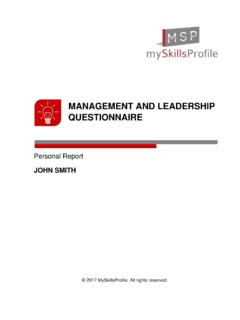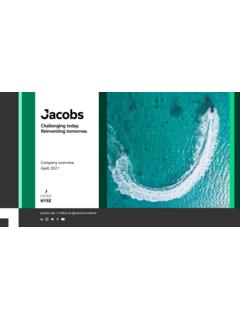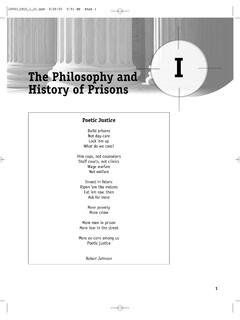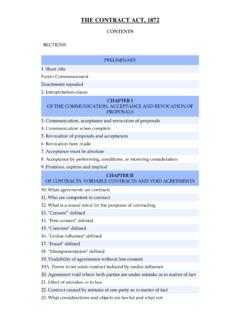Transcription of Buddhism Beliefs and Teachings - Sir William Robertson …
1 Buddhism Beliefs and Teachings The Dhamma (Dharma). The concept of Dhamma (Dharma). The concept of dependent arising (paticcasamupada). The Three Marks of Existence: anicca (impermanence). anatta (no fixed self). dukkha (unsatisfactoriness of life, suffering). The human personality, in the Theravada and Mahayana traditions: Theravada: the Five Aggregates (skandhas) of form, sensation, perception, mental formations, consciousness Mahayana: sunyata, the possibility of attaining Buddhahood and Buddha-nature. Human destiny: different ideals in Theravada and Mahayana traditions: Arhat (a perfected person') and Bodhisattva ideals Buddhahood and the Pure Land. The Buddha and the Four Noble Truths The Buddha's life and its significance: the birth of the Buddha and his life of luxury the Four Sights: illness, old age, death, holy man (Jataka 075).
2 The Buddha's ascetic life the Buddha's Enlightenment. The Four Noble Truths: 1 suffering (dukkha) including different types of suffering 2 the causes of suffering (samudaya); the Three Poisons, ignorance, greed and hate 3 the end of craving (tanha), interpretations of nibbana (nirvana) and Enlightenment 4 the Eightfold Path (magga) to nibbana/nirvana; the path as the Threefold Way: ethics (sila), meditation (samadhi) and wisdom (panna). Dhammapada 190 191. Teaching Source of Authority Specification Thus, he realised the triviality of the Jataka 075 Prescribed - The mundane life, which is bound to crumble, Buddha and the Four Noble because if one is born one would Truths (page 11).
3 Undergo the process of ageing, sickness, death and all kinds of suffering Beliefs The Dhamma, The Buddha and the four noble truths The ascetic's resolution to renounce the worldly life in quest of the truth infused greater happiness in his heart and inspired him to lead the life of an ascetic.'. He who has gone for refuge to the Dhammapada 190 191 Prescribed - The Buddha, the teaching and his Order, Buddha and the Four Noble penetrates the transcendental wisdom Truths (page 11). of the Four Noble Truths suffering, Beliefs The Dhamma, The Buddha and the four noble the cessation of suffering, and the truths Noble Eightfold Path leading to the cessation of suffering'.
4 I take refuge in the Buddha. I take Declaration of faith, chant. Used in Beliefs The Dhamma, The Buddha and the four noble refuge in the Dharma. I take refuge in the Sangha when they take refuge' truths the Sangha.. The world is afflicted by death and The Buddha [Sutta Nipata] Beliefs The Dhamma, The Buddha and the four noble decay. But the wise do not grieve, having truths realized the nature of the world. In Buddhism , ignorance as the root HH The 14th Dalai Lama Beliefs The Dhamma, The Buddha and the four noble cause of suffering refers to a truths fundamental misperception of the true nature of the self and all phenomena. Attachment is the root of suffering- Pali Canon Beliefs The Dhamma, The Buddha and the four noble Buddha truths Teaching Source of Authority Specification All conditioned things are impermanent.
5 All Dhammapada 277-9 Beliefs The Dhamma, The Buddha and the four noble conditioned things are inherently lacking. All truths realities are devoid of an abiding self Suffering I teach, and the way out of it' Buddha Pali Canon Beliefs The Dhamma, The Buddha and the four noble truths If you walk the path, you will arrive at the end of Pali Canon Beliefs The Dhamma, The Buddha and the four noble suffering' Buddha truths We and all sentient beings fundamentally have the Sogyal Rinpoche Beliefs The Dhamma Buddha nature as our innermost essence One who sees paticcasamuppada sees the Majjhima Nikaya Beliefs The Dhamma Dhamma. One who sees the Dhamma sees paticca (Sutta Pitaka, Pali Canon).
6 Samuppada'. I am chief of the world, Eldest am I in the world, Jataka tales Beliefs The Buddha and the four noble truths Foremost am I in the world. This is the last birth. There is now no more coming to be' Siddhartha's words when born To Nirvana my mind has gone, I have arrived at Buddha Beliefs The Dhamma, The Buddha and the four noble the extinction of evil desire' truths All beings love life and happiness. Taking Buddha Beliefs The Buddha and the four noble truths yourself for comparison, you should neither Practices Buddhist ethics harm or kill, nor cause to harm or kill another Themes Religion and life Themes religion, human being rights and social justice Themes religion, peace and conflict Some are reborn as humans; evildoers are reborn in hell.
7 Dhammapada 126 Beliefs The Dhamma, The Buddha and the four noble truths Doers of good are reborn in bliss and the pure enter Nibbana' Practices Buddhist ethics Themes religion and life There is no need for temples, no need for complicated HH The 14th Dalai Lama Beliefs The Dhamma, The Buddha and the four noble truths philosophies. My brain and my heart are my temples; my Practices Buddhist ethics philosophy is kindness'. Just seeing a portrait or statue of Buddha purifies our mind Kyabe Lama Zopa Rinpoche Beliefs The Buddha and the and plants the seed of enlightenment four noble truths Practices Worship and festivals Teaching Source of Authority Specification The Buddha's perfection is complete; there Dhammapada 179-180 Beliefs The Dhamma, The Buddha and the four is no more work to be done in him there is noble truths no craving There is no old age, sickness or death for Nirvana Sutra Beliefs The Dhamma, The Buddha and the four me, my life is forever without end.
8 I proceed noble truths burning bright like a flame Disciples of the Buddha are fully awake Dhammapada 301 Beliefs The Dhamma, The Buddha and the four both day and night taking delight in noble truths cultivating the heart' Practices Buddhist ethics The truth of suffering is like a Visuddhimagga p512 Beliefs The Dhamma, The Buddha and the four disease ..and the truth of the path is like noble truths the medicine Practices Buddhist ethics However innumerable sentient beings are; Bodhisattva vow Beliefs The Dhamma, The Buddha and the four I vow to save them noble truths Practices Buddhist ethics Themes religion and life Themes religion, human rights and social justice Themes religion, peace and conflict Not in the sky, not in the middle of the sea, Dhammapada 127 Beliefs The Dhamma, The Buddha and the four not entering an opening in the mountains is noble truths there that place on earth where standing Practices Buddhist ethics one might be freed from evil action No one saves us but ourselves, No one can Dhammapada 165 Beliefs The Dhamma, The Buddha and the four and no one may.
9 We ourselves must walk the noble path, but Buddha has clearly show the way. truths By action, knowledge and Dhamma, by Majjhima Nikaya vol 3 Themes religion, human rights and social virtue and noble way of life By these /262 justice Themes religion, peace and conflict are mortals purified, not by lineage or Practices Buddhist ethics wealth Beliefs The Dhamma, The Buddha and the four noble truths How to use this to make it stick! The concept of Dhamma (Dharma) and The concept of 1. Read through the information dependent arising (paticcasamupada). 2. Highlight the key information 3. Create a revision aid on it (flash card, mind map, acronym, cheat sheet etc) Dhamma: Universal law; ultimate truth; the Teachings of Buddha.
10 Spelt in Sanskrit as dharma. 4. Test yourself on the revision aid (cover up and say it out loud > cover up Paticcasamupada: The concept of dependent arising. The belief that everything in existence is because and write it out) other things are. The idea that everything is interconnected and that everyone affects everyone else 5. Practice the past paper questions (without the revision aid). 6. Review your answers with your revision aid (add anything you missed out). and rate your progress Concept Description Sacred writing/ teaching Why it is important for Buddhists/ how it influences them Dhamma (Dharma) This is the teaching of the Buddha, it My teaching is a means of practice, not Following the Teachings has relieved many is the way the universe operates.






